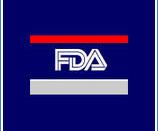The pharmaceutical industry has produced many drugs that have benefited man. Political frameworks designed to govern the industry must maintain these benefits, however, regulation needs to be adequately strong enough to protect public health from drugs that are unsafe, ineffective, or unnecessary. The extent of industry over drug regulation, at the expense of other interested parties, suggests that the current system could be tougher. In addition, every president and presidential candidate develops new prescription plans to help earn themselves votes from the public. Through the years after election, many of these plans drastically change, and often presidents find it is hard to please everyone. This is very true when it comes to President George W. Bush's proposed prescription plans.(Abraham, p. 1498)
The government controls every aspect of the pharmaceutical industry. The Food and Drug Administration, or the FDA, is the governmental agency that is in charge of regulating the pharmaceutical industry.
Recently, public concerns over rising pharmaceutical spending are generating support in Washington for policies to speed generic products to market and to reduce litigation over patents and exclusivity. Generics firms say they mostly seek to reduce the uncertainty created when an innovator lists a new patent just before the FDA is slated to approve an ANDA; approving abbreviated new drug applications. One reform proposal is to limit listing to patents covering the drug product, and not to irrelevant patents, while there are other ideas to set aside deadlines for listing new patents. Both draw manufacture opposition. (Wechsler)
One of the biggest controversies is whether to extend generic exclusivity and testing policies to biotech products. Manufacturers must conduct lengthy clinical trials to gain the FDA approval of generic versions. Due to the expense of this, policy makers and generics firms are pressing Congress to develop some type of regulatory pathway...


